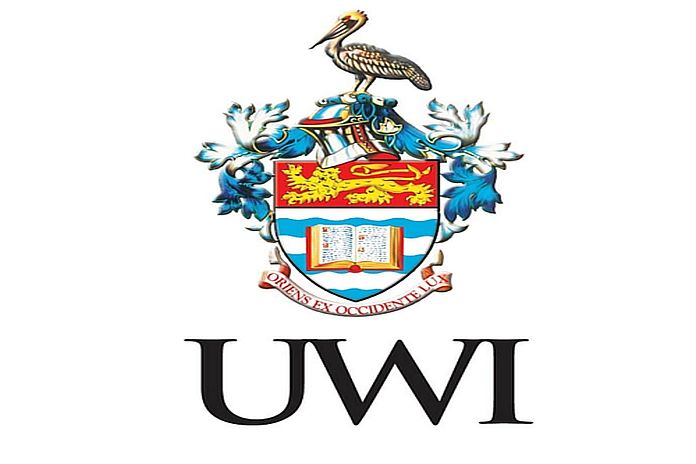By The UWI KINGSTON, Jamaica — The University of the West Indies (The UWI) in collaboration with the Open Society University Network (OSUN) recently hosted a webinar on the Caribbean’s need for climate justice. The virtual engagement held on March 30 was part of Open Society’s Global Teach-In series.
Championing a grassroots effort, the initiative designated the date for universities and organisations worldwide to lead events focused on ambitious but feasible, region-specific solutions to help Solve Climate by 2030.
The webinar Climate Justice in the Caribbean, hosted by the University’s Office of Global Affairs was one of more than 250 events held throughout the global OSUN network. The public education event which engaged a wide group of stakeholders, built on the research projects and collaborations that have been fostered through The UWI’s MOU with Open Society Foundations – one of which supports the development of a climate justice strategy.
In her welcome remarks, UWI Pro-Vice-Chancellor of Global Affairs, Dr Richards-Kennedy reinforced the University’s position as an activist and SDG-engaged academy. The UWI, she said, is committed to the idea of higher education institutions being at the forefront of climate action and climate justice. She noted also that universities “… are not only vital hubs for research, teaching, and knowledge exchange. They also serve as living laboratories and are important spaces for demonstration projects on how research can be applied to provide practical solutions to climate challenges.”
She also introduced the connection between climate and reparatory justice stating, “Climate justice is integrated also into the discourse on reparatory justice because research has shown that the countries that are the most affected are those that were historically exploited and drained of natural resources during centuries of extraction and exploitation that occurred during colonization.”
This connection was acknowledged and supported by other presenters on the webinar, which included Yamide Dagnet, global director, Climate Justice, Open Society Foundations; Dr James Fletcher, former energy minister of Saint Lucia and founder and managing director, SOLORICON Ltd; and Dr Emily Dick-Forde, acting deputy principal, The UWI Open Campus, and management committee member of the UWI Global Institute for Climate-Smart and Resilient Development.
Yamide Dagnet commended The UWI as being a ‘powerhouse’ in climate change leadership. She also acknowledged the connection between the justice discourse on climate change and The UWI’s global leadership on reparation for slavery and genocide. “The poor, women…the most vulnerable, marginalized communities of indigenous, black and people of colour; we bear the consequences disproportionately without any guarantee of dignity.” She went on to note that although these communities bear little responsibility for climate change and its significant economic costs, “the impact of climate change on vulnerable countries has been neglected and unfunded.”
Dr James Fletcher flagged the need to shift the conversation from ‘climate change’ to ‘climate crisis’ during his contribution. He believes that climate change suggests something incremental – therefore something for which we have time to prepare. However, he warned, “We do not have time so really what we are faced with is a crisis. A catastrophe that is unfolding at a very rapid rate…we now must adjust our response to suit the urgency.” He encouraged the Caribbean to make its own efforts; end the self-inflicted damage and build resilience in areas such as water systems, public health, and public infrastructure.
Dr Emily Dick-Forde called for Caribbean governments and people to “take active and even aggressive roles in the pursuit of climate justice.” Citing the working definition included in the UWI’s Climate Justice initiative Dr Dick-Forde said climate justice implies “…transformative changes and the need to look beyond national boundaries to what is good for the world as a whole.”
She continued: “Climate justice is asking for priority to be placed on the spending of national governments in those countries where their development and advancement came on the backs of other regions in several ways. Not just in terms of greenhouse gas emissions, but certainly in terms of historical injustices with respect to colonialism, imperialism, neocolonialism and especially the root, which is the enslavement and exploitation of Africans.”
Highlighting the resulting financial and mental limitations for exploited regions, Dr Dick-Forde stated unapologetically: “Historical injustices are in fact hindrances to climate action in the Caribbean.” She believes reparatory justice should focus beyond our historical past; “It has to be seen as having an active role in going forward with respect to ensuring climate justice and to promoting climate action for resilience building in the Caribbean.”
Regarding solutions to the urgent need to mainstream climate justice and address the climate crisis facing the Caribbean, the panelists shared several thoughts.
Yamide Dagnet suggested that solutions require “free exchange of ideas and thoughts and that everyone should have the choice and dignity in shaping the policies that affect them.”
Dr James Fletcher took the opportunity to call on Caribbean governments to “intensify the diplomatic pressure on developed countries to curb the emissions of greenhouse gases…to increase their financial support to climate-vulnerable countries and lobby actively and robustly for climate justice.”
Dr Dick-Forde advocated for democratizing the systems for managing climate funds to widen access beyond governments to NGOs, community groups, and activists.





